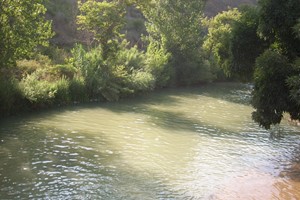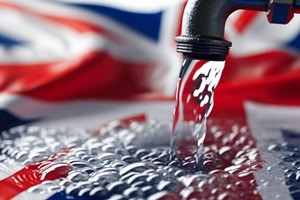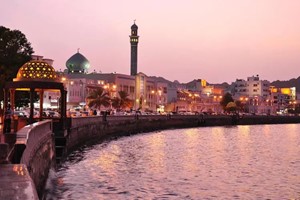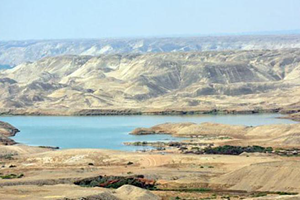The Lake's waters irrigate about 30 percent of the country's irrigated land with 1,400 hectares (ha) of the agricultural area in the Bekaa valley and 36,000 ha in the South of Lebanon, and generate electricity in the Markaba (34 Mega Watt (MW)), Awali (108 MW) and Joun (48 MW) hydropower plants. Pollution is however a serious problem affecting the quality of the Litani River and the Qaraoun lake. Despite the current water uses, the Litani River and the Qaraoun Lake are polluted by four major sources, i.e., municipal wastewater, industrial wastewater, solid waste and agricultural chemicals including non-degradable pesticides. Pollution from the above sources led to deterioration of water quality in the Litani River and Qaraoun Lake which are now contaminated with high concentrations of ammonia, nitrites and fecal coliforms, urban runoff and organic industrial pollution, such as phenols. Lake Qaraoun was found to exceed the world average concentrations in lakes with regard to metals such as Arsenic (As), Cadmium (Cd), Mercury (Hg) and Vanadium (V) which has resulted in making the lake unsuitable for drinking and contact water sports, and fit for irrigation only with restrictions. To address this critical situation, the Ministry of Environment of the Government of Lebanon (GoL) has completed a Business Plan which identifies the major sources of pollution in the Qaraoun Lake and recommends appropriate solutions including detailed prioritized investments for each polluting sector. As part of the government's USD250 million Business Plan to Combat Pollution in Lake Qaraoun, the Ministry of Finance and the Council for Development & Reconstruction signed a USD55 million loan with the World Bank to finance the Lake Qaraoun Pollution Prevention Project, according to a report published by Byblos Bank's Economic Research & Analysis Department. The project is estimated to cost USD60 million, of which USD55 million would be covered by the World Bank loan and USD5 million would come from the Lebanese government. The Lake Qaraoun Pollution Prevention Project aims to reduce the quantity of untreated municipal sewage discharged into the Litani River and improve pollution management around the Qaraoun Lake. First, the project seeks to improve municipal sewage collection in areas that have wastewater treatment plants or in municipalities than tinted to build such plants. Specifically, it aims to expand the sewage networks to connect them to the wastewater plants in the cities of Zahle, Anjar and Aitanit. Second, the project seeks to improve pollution management around the Qaraoun Lake through technical assistance that mainly aims to improve solid waste management, water quality monitoring and capacity. The ministry estimated the number of direct beneficiaries at about 80,000 people. The World Bank quotes Manal Moussallem, Senior Environmental Advisor at the Ministry of Environment, as indicating that "The active involvement of all members of the Qaraoun committee has been instrumental in advocating for cleaning up the pollution in Lake Qaraoun. The committee brings together representatives from ministries, agencies and municipalities to seek solutions and funding to implement the Qaraoun Business Plan."
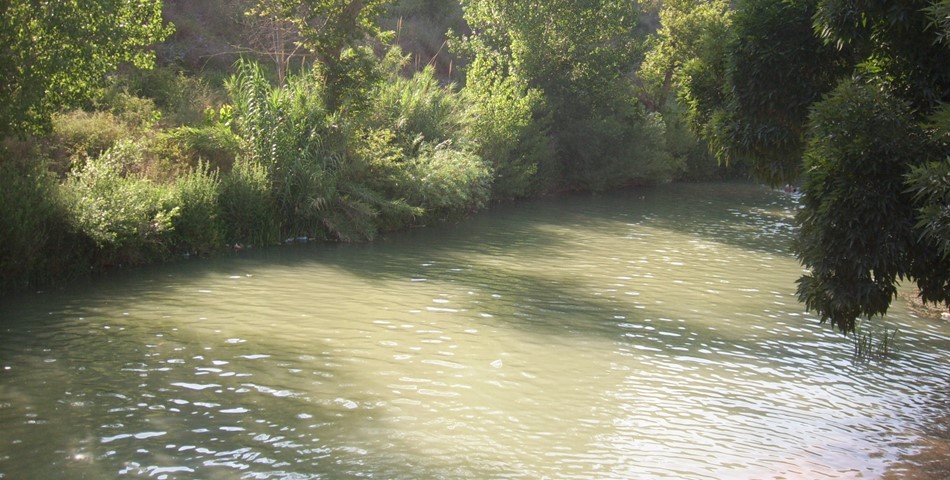
The Litani River is the principal artery of Lebanon, exceeding 170 km in length, and its major water structure is the Qaraoun dam, which forms the Qaraoun Lake (or reservoir), as per a report published by the Earth Link and Advanced Resources Development s.a.l. (ELARD). In 1959, the Qaraoun Lake, the largest artificial Lake in Lebanon, was built to produce hydropower, and provide water for irrigation and potable water supply. The Lake is situated in the West Bekaa at an altitude of 800 m and covers an area of 12 km2. The Lake has a capacity to hold 220 million m3. Approximately 70-80 percent of its storage capacity is used for irrigation and hydropower.
Related Articles




